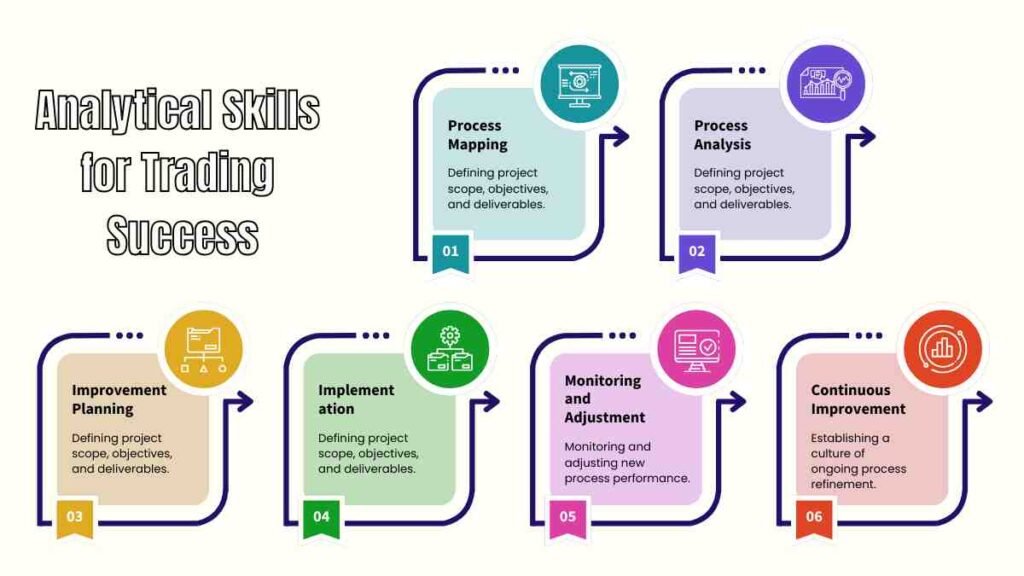Trading Skills for Beginners: How to Master the Basics

Trading skills for beginners trading can be both exciting and daunting. With financial markets offering a wide array of opportunities, beginners can feel overwhelmed by the sheer volume of information and strategies out there. To make the journey a bit smoother, this guide breaks down essential trading skills, basic market concepts, and effective strategies that will set you on the right path.
Understanding the Basics of the Stock Market
Learning the fundamentals of the stock market is the first step for any aspiring trader. The stock market is where individuals and institutions buy and sell shares, representing ownership in various companies. Beyond shares, there are other financial instruments like bonds, ETFs, and derivatives that also make up this dynamic market.
What is the Stock Market?
At its core, the stock market is a marketplace that facilitates the exchange of equity shares in publicly traded companies. It operates based on the principles of supply and demand, with prices rising and falling depending on these forces.
Key Components of the Stock Market
The stock market has two main segments: the primary market and the secondary market. In the primary market, new shares are created and offered to the public in what’s known as an IPO (Initial Public Offering). Once shares are issued, they are traded in the secondary market, where everyday investors buy and sell them.
The Role of Supply and Demand
Supply and demand are at the heart of stock price fluctuations. When demand for a stock is high, its price tends to increase. Conversely, when more people are selling a stock than buying it, the price drops. Understanding this basic principle is crucial as you move forward in your trading journey.
Essential Trading Skills for Beginners: Trading Skills for Beginners
While there’s no magic formula for trading success, there are skills you can develop to increase your chances of making profitable decisions in the markets.
Building a Strong Foundation in Market Knowledge
Knowledge is a trader’s most valuable asset. Learning the jargon, market behaviors, and the historical performance of different asset classes can provide insight into future trends. This knowledge will also help you understand the “why” behind your trades, rather than just following tips or trends.
Analytical Skills for Trading Success

Successful trading requires strong analytical skills. You’ll need to interpret charts, patterns, and data, and make informed predictions about where the market might be headed. Both technical and fundamental analysis play a role in making these predictions.
Patience and Discipline
Markets are inherently unpredictable, and emotions can quickly lead to costly mistakes. Patience and discipline are key to waiting for the right opportunities rather than jumping in based on impulse. Over time, disciplined traders tend to see better returns.
Risk Management Techniques Every Beginner Should Know
Risk management is one of the most critical aspects of trading. It helps limit potential losses, ensuring that one bad trade doesn’t wipe out your entire portfolio.
The Importance of Risk Management in Trading
Trading without a risk management plan is like driving without a seatbelt. By setting limits on potential losses, traders can protect themselves from significant downturns and maintain a more stable approach to building wealth.
Setting Stop-Loss and Take-Profit Levels
A stop-loss order allows traders to set a maximum loss on a trade, while a take-profit order ensures profits are taken before the market turns. These tools are essential for managing your exposure and keeping emotions in check.
Diversification as a Risk Management Tool
Diversification spreads your investments across different assets to reduce risk. For example, investing in various sectors or types of securities (like bonds and stocks) can help stabilize your portfolio and minimize losses when markets are volatile.
Introduction to Technical Analysis Tools
Technical analysis involves studying past price movements to predict future price behavior. It’s an essential skill for traders looking to anticipate market moves.
Understanding Technical Analysis and Its Importance
Technical analysis helps traders make sense of market data through charts, patterns, and indicators. While it doesn’t guarantee success, it provides a framework for making data-driven decisions instead of relying purely on instinct.
Popular Tools for Technical Analysis: Trading Skills for Beginners
Among the most popular technical tools are moving averages, Relative Strength Index (RSI), and Bollinger Bands. Each tool serves a unique purpose in helping traders identify trends, entry and exit points, and the momentum of assets.
How to Use Charts and Indicators Effectively
Charts and indicators are only as effective as the trader’s understanding of them. Familiarizing yourself with candlestick patterns, trend lines, and support/resistance levels can make a substantial difference in your ability to interpret market signals.
Trading Strategies for Beginners
Choosing a strategy that aligns with your goals, risk tolerance, and time commitment is essential for long-term success in trading.
Day Trading vs. Swing Trading
Day trading involves making quick trades within the same day, aiming for small but frequent profits. Swing trading, on the other hand, focuses on holding assets for a few days or weeks to capitalize on broader price movements.
Trend Following as a Beginner Strategy
Trend following is a beginner-friendly strategy that involves identifying and following the direction of a market trend. This approach reduces complexity while allowing you to ride momentum for potential profits.
Importance of Trading Plan

A trading plan outlines your goals, risk tolerance, and strategies, keeping you on track and minimizing the likelihood of impulsive decisions. It acts as a blueprint for all your trading activities.
Keeping Up with Financial Market Trends
To succeed in trading, you must stay updated on the latest market developments, economic indicators, and world events that influence financial markets.
Why Staying Informed Matters
Markets are affected by a range of factors, from political events to economic shifts. Keeping up-to-date with relevant news and trends can help you make timely, informed trading decisions.
Tools and Resources for Market Updates
There are numerous resources to help you stay informed, such as financial news websites, economic calendars, and trading apps. Subscribing to credible sources can keep you a step ahead in the fast-paced world of trading.
Conclusion
Trading can be a rewarding endeavor, but it requires patience, knowledge, and a willingness to learn continuously. By mastering the basics, building essential skills, and employing risk management techniques, you’ll be better equipped to navigate the complexities of the financial markets. Remember, every trader starts as a beginner, and with practice and perseverance, success is within reach.
FAQs
What is the best trading strategy for beginners?
A trend-following strategy is often recommended for beginners due to its simplicity and lower risk compared to more complex strategies.
How much capital do I need to start trading?
This depends on the market and asset type. Some platforms allow you to start with as little as $100, but having more can provide flexibility and minimize risks.
How can I improve my technical analysis skills?
Practice is key. Start with basic tools like moving averages and candlestick patterns, and gradually explore more advanced indicators.
How often should I review my trades?
Regular reviews—daily or weekly—help you learn from past trades and refine your strategies based on performance.
Can I make a living from trading?
Some traders do, but it’s challenging and requires experience, capital, and emotional resilience. Beginners should focus on learning before relying on trading as a primary income source.




